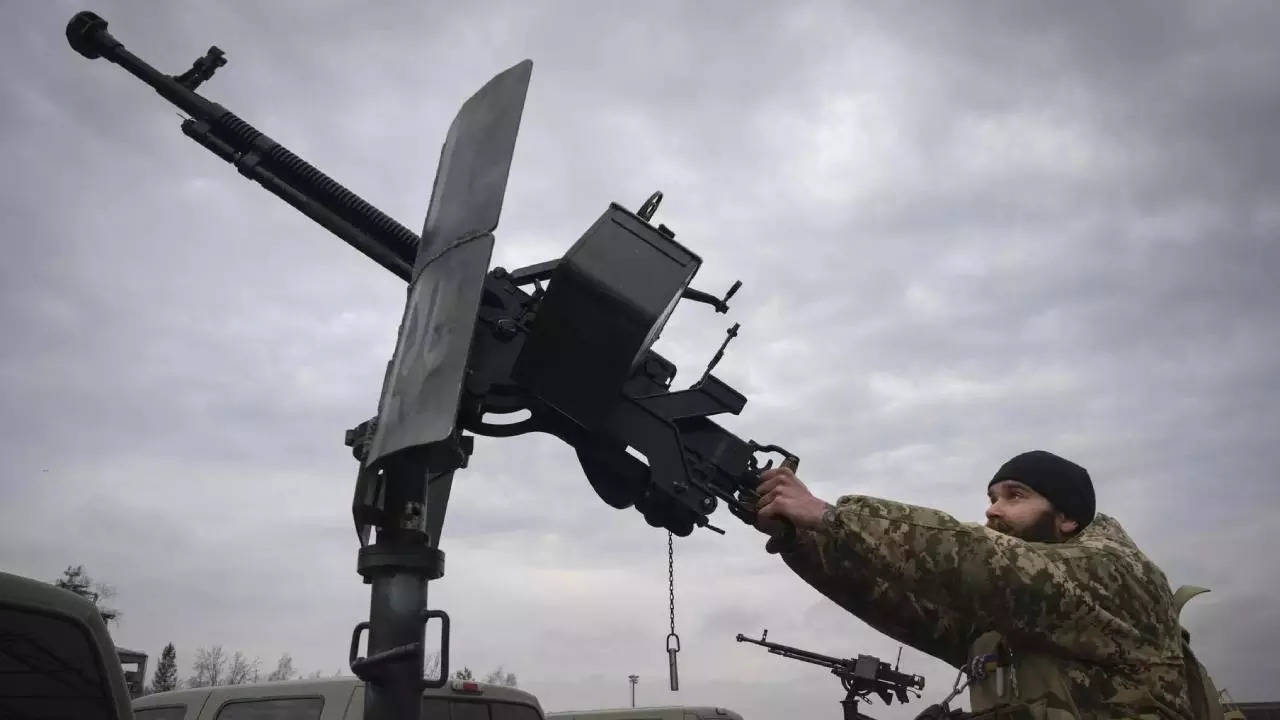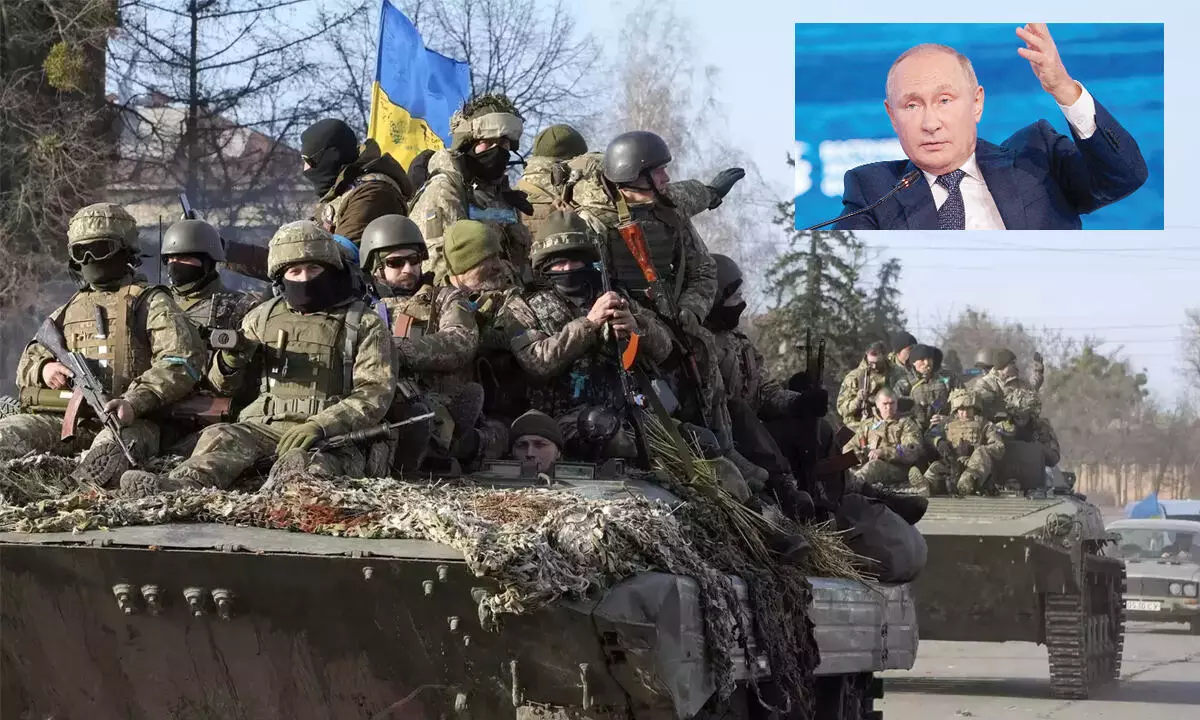
Ukraine may lose 2,00,000 soldiers if it ‘invades’ Crimea: Oleksiy
Oleksiy Arestovych, a former adviser to the Ukrainian President, has expressed concern about the potential consequences if Ukraine attempts to retake annexed Crimea during the ongoing counteroffensive against Russia. Arestovych’s warning highlights the complexities and risks of such a military operation.
Retaking Crimea from Russia would likely be a highly challenging and risky endeavour for Ukraine. Since Russia annexed Crimea in 2014, the region has been heavily militarized, making it difficult for Ukraine to achieve a successful military operation without significant losses. Russia’s military presence, including troops, naval bases, and air defence systems, poses a formidable barrier.
Additionally, any attempt to retake Crimea would escalate the conflict between Ukraine and Russia, further intensifying tensions and potentially leading to a full-scale war. Such a scenario would have severe humanitarian consequences and could result in significant casualties, damage to infrastructure, and displacement of people.

Moreover, any military action by Ukraine to retake Crimea would likely face strong opposition from Russia and potentially provoke a robust military response. Russia has demonstrated its willingness to use military force to protect its interests in the region, as seen in the 2014 annexation of Crimea and subsequent military involvement in eastern Ukraine.
Given these factors, Arestovych’s warning underscores the need for Ukraine to carefully consider its options and weigh the potential costs and benefits of any military action. Diplomatic efforts, international support, and political strategies should be pursued to address the situation in Crimea and seek a peaceful resolution.
It is essential for Ukraine to prioritize the well-being and safety of its citizens and to seek long-term stability and security in the region. Engaging in a military confrontation without a clear plan and adequate support could result in devastating consequences for Ukraine and the broader region.
Ultimately, the situation in Crimea requires a comprehensive and diplomatic approach involving international negotiations, political dialogue, and respect for international law. Finding a peaceful resolution that respects Ukraine’s territorial integrity while addressing all parties’ concerns is crucial to ensure a sustainable and stable future for Crimea and the wider region.
Oleksiy Arestovych, a former adviser to the Ukrainian President, has raised serious concerns regarding the potential consequences of Ukraine attempting to retake annexed Crimea amidst the ongoing counteroffensive against Russia. Arestovych’s warning highlights the significant risks and complexities associated with such a military operation.
Retaking Crimea from Russia would undoubtedly be an incredibly challenging and complex endeavour for Ukraine. Since Russia’s annexation of Crimea in 2014, the region has become heavily militarized, making it an arduous task for Ukraine to achieve a successful military operation without incurring substantial losses. The presence of Russian troops, naval bases, and advanced air defence systems poses a formidable barrier.

Furthermore, any attempt by Ukraine to retake Crimea would escalate the conflict with Russia, further intensifying tensions and potentially leading to a full-scale war. Such a scenario would result in severe humanitarian consequences, including significant casualties, infrastructure damage, and the displacement of countless individuals.
It is crucial to acknowledge that any military action aimed at retaking Crimea would face strong opposition from Russia and could provoke a robust military response. Russia has previously demonstrated its willingness to employ military force to protect its interests in the region, as evidenced by the 2014 annexation of Crimea and its subsequent military involvement in eastern Ukraine.
Arestovych’s warning, therefore, serves as a stark reminder for Ukraine to exercise caution and carefully consider the potential costs and benefits of any military action. It underscores the necessity of pursuing diplomatic efforts, garnering international support, and employing political strategies to address the situation in Crimea and seek a peaceful resolution.
Ukraine must prioritize the well-being and safety of its citizens and strive for long-term stability and security in the region. Engaging in a military confrontation without a well-defined plan and adequate support could have devastating consequences for Ukraine and the broader region.
Arestovych’s statement, explicitly mentioning the potential loss of 200,000 Ukrainian soldiers and the destruction of Ukraine’s economy, highlights the grave risks involved. Such a significant loss of human life and the detrimental impact on the economy would undoubtedly have long-lasting effects on the country and its people.
Given these factors, it is imperative for Ukraine to approach the situation in Crimea with a comprehensive and diplomatic strategy.
International negotiations, political dialogue, and a commitment to upholding international law should be central to resolving the conflict. Finding a peaceful resolution that respects Ukraine’s territorial integrity while addressing the concerns of all parties involved is crucial for establishing a sustainable and stable future for Crimea and the wider region.

In conclusion, Arestovych’s warning underscores the immense challenges and risks Ukraine would face in attempting to retake Crimea from Russia. It serves as a reminder for Ukraine to prioritize diplomatic efforts, seek international support, and explore political solutions to address the situation. The potential loss of soldiers and the economic consequences emphasized by Arestovych’s warning highlight the gravity of the problem and the need for a measured and comprehensive approach to ensure the well-being and security of Ukraine and its citizens.




